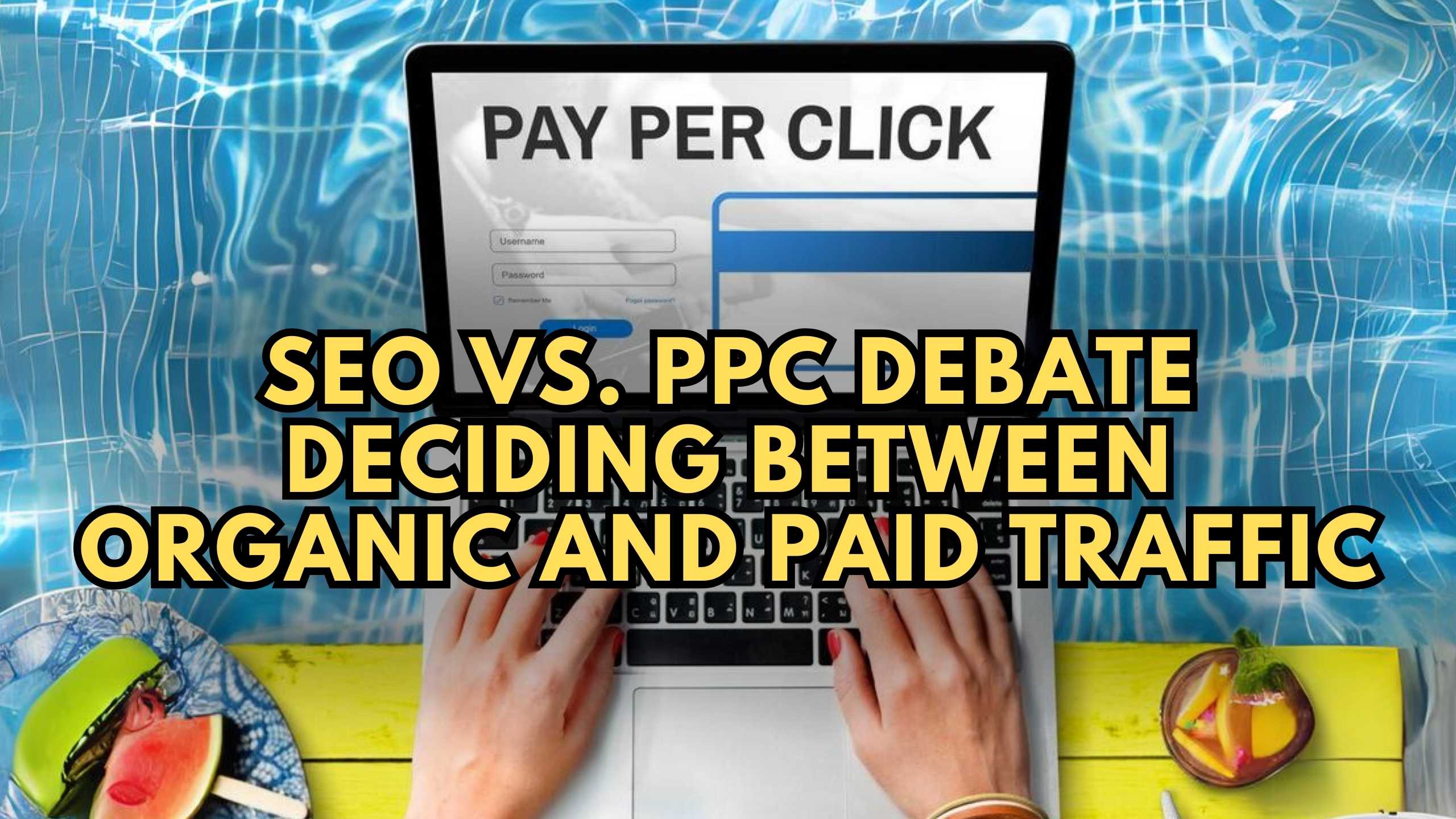SEO vs. PPC Debate: Deciding Between Organic and Paid Traffic
- Conversational Marketing Software SEO Software Affiliate Marketing Software Marketing Tools


SEO vs. PPC Debate: Deciding Between Organic and Paid Traffic
In the realm of online marketing, the eternal debate between SEO (Search Engine Optimization) and PPC (Pay-Per-Click) continues to perplex businesses seeking the most effective strategy for driving traffic. Let’s dissect the nuances of both approaches, weighing the benefits and considerations to help you make an informed decision for your digital marketing efforts.
How SEO Works
SEO aims to improve a website’s ranking in organic search engine results pages (SERPs) for relevant keywords. The higher a site ranks for a keyword, the more visible it is to searchers and the more traffic it can garner. SEO is a long-term strategy focused on building authority and relevance. Tactics include optimizing page content, structure, URLs, metadata, linking, etc. The benefits of higher rankings are more exposure and visitors at a lower cost per click than PPC. However, SEO traffic volumes tend to build slowly over months or years. Tools like Ahrefs aid in keyword research, helping businesses align their content with user intent.
One major advantage of SEO is the trust factor. Organic search results are perceived as more authentic and trustworthy by users, contributing to long-term brand credibility. While SEO may take time to yield results, the sustained organic traffic is a valuable asset.
How PPC Advertising Works
PPC advertising, like Google Ads, allows businesses to pay for clicks and impressions on search engine results pages. Unlike organic results, ads appear right at the top above or alongside normal rankings.
Marketers bid on keywords relevant to their target audience. You then pay each time your ad is clicked. The benefits of PPC include predictable traffic volumes from day one and being able to test different keywords easily. The main downside is the expense of paying per click, which adds up.
The immediacy of PPC is a significant advantage for businesses looking to generate quick results and boost visibility for specific campaigns. However, the cost-per-click model necessitates a budget, and the benefits diminish once the advertising stops.
ROI Considerations: Balancing Costs and Results
When deciding between SEO and PPC, evaluating the return on investment (ROI) is crucial. SEO generally requires a more extended timeframe for noticeable results, but the long-term benefits can outweigh the initial investment. On the other hand, PPC offers immediate visibility but comes with ongoing costs that cease when the ad spend stops.
Tools like SEMrush assist in analyzing the competitive landscape, helping businesses gauge the feasibility and potential ROI of both SEO and PPC strategies.
Navigating Competition in the Digital Arena
The digital landscape is highly competitive, and understanding your industry’s dynamics is essential. Tools like Moz provide insights into competitor strategies, allowing businesses to fine-tune their own approach. Recognizing the keywords your competitors target can inform your SEO and PPC strategies for a more competitive edge.
Integration for Holistic Digital Marketing
The SEO vs. PPC debate doesn’t have to be an either-or scenario. Many businesses find success in integrating both strategies for a comprehensive digital marketing approach. Utilizing tools like SEMrush for SEO and AdRoll for retargeting in PPC creates a synergy that maximizes visibility and engagement across various channels.
Key Takeaways: Should You Prioritize Organic or Paid Traffic?
- For new sites with no domain authority, PPC delivers the fastest results. SEO takes longer but costs less over time.
- Established sites should focus on SEO for sustainable long term growth, supported by PPC to hit short term targets.
- Budgets determine the mix. SEO has higher upfront effort but lower ongoing costs. PPC costs more but with full control from day one.
- Start ups sacrificing profit for growth favor PPC to scale quickly. Bootstrapped businesses may start with SEO to minimize spend.
For most businesses, the ideal approach is to leverage both. SEO and PPC combined provide short and long term visibility for maximizing traffic.
Recommended Saas Products:
- Ahrefs is an all-in-one SEO toolset known for comprehensive backlink analysis, keyword research, and competitor insights, aiding businesses in optimizing their online presence.
- Google Ads is a powerful online advertising platform by Google, enabling businesses to create and manage ads that appear in Google’s search results and across its advertising network.
- SEMrush is an all-in-one digital marketing toolkit offering tools for SEO, PPC, content marketing, and competitive analysis, providing valuable insights for optimizing online strategies.
- Moz is a leading SEO software that provides tools and insights to enhance online visibility through comprehensive SEO analytics, keyword research, and site optimization.
- AdRoll is a growth platform specializing in retargeting and personalized advertising. It helps businesses engage their target audience across multiple channels, driving conversions and sales.
Conclusion
In the SEO vs. PPC debate, there’s no one-size-fits-all answer. Your decision should align with your business goals, budget, and the level of immediacy required. Whether you opt for the sustainable growth of SEO or the targeted visibility of PPC, understanding the intricacies of each approach is crucial for a well-rounded digital marketing strategy.
Take Action Now!
Ready to elevate your digital marketing strategy? Unlock exclusive deals and save big with Subscribed.fyi. Manage all your subscriptions effortlessly, compare SaaS tools, and make informed decisions. Sign up for free today and take control of your expenses.
Relevant Links:








